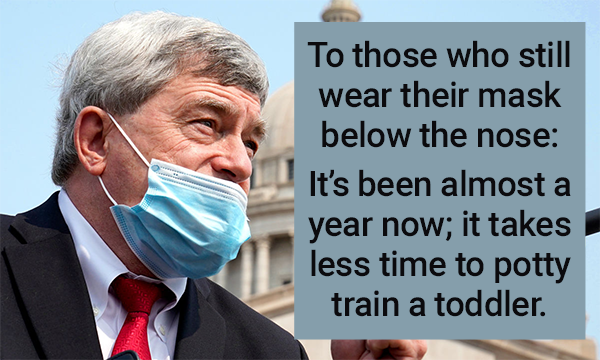Canadians clean the water, Germans repair nerves, scientists study strains, and more
20 Jan 2021
Posted by Andrew Kantor
Germans repair broken spinal cords
German researchers have cured spinal cord injuries in mice — we’re talking allowing them to walk again after having their spinal cords severed.
If your reaction is “Wait, what?” you read that correctly.
“[G]ene therapy treatment of only a few nerve cells stimulated the axonal regeneration of various nerve cells in the brain and several motor tracts in the spinal cord simultaneously. Ultimately, this enabled the previously paralyzed animals that received this treatment to start walking after two to three weeks.
They used virus to deliver a blueprint for a “designer cytokine” — a protein that doesn’t occur in nature — to nerve cells. Those cells produced the protein (called “hyper-interleukin-6”) to other nerve cells, where it “stimulated the axonal regeneration.”
Final say: Saliva Covid tests
“I learned there were places in my nose I never knew existed,” said my Dutch friend of her Covid test. But it doesn’t have to be that way. Two studies out of Canada’s McGill University show that saliva testing works just as well as those nasal swabs. (Not that either is perfect.) Saliva tests are quicker, cheaper, and don’t require training, so it opens home testing as a possibility.
Previous studies were inconclusive, so the McGill folks hope this puts an end to the question.
Just say no
After sinus surgery, placebos are just as good (“noninferior”) as routine antibiotics. That is all.
Canadian ingenuity
With water playing an important part of their culture (e.g., ice hockey), Canadiens are keen on keeping it clean. One class of chemical they’re worried about are chemotherapy drugs like methotrexate. It’s not absorbed by the body, so it ends up (via obvious means) in sewage, and eventually waterways, because conventional water treatment doesn’t clean it out.
So University of British Columbia engineers went ahead and solved the problem, creating an adsorbent nanomaterial that can “remove the anti-cancer drug from aqueous solutions quickly.”
And that’s that.
There’s gonna be a new sheriff in town
“Biden’s CDC Director: I’ll Make Sure Voices Of Science Are Heard Again”
Who will get sickest?
Some Covid patients in hospital can leave after a few days. Others “go on to develop severe disease, including complications that require the insertion of a breathing tube, kidney dialysis or other intensive care.” When they first arrive it’s hard to know which will be which.
But now Washington University researchers say they’ve found a way — a quick blood test that measures mitochondrial DNA. Yes, measures. If a lot of mitochondrial DNA is present in the blood, it means those mitochondria are being shredded, and that’s a sign of a bad time coming.
It’s not perfect, and it’s still in testing, but that kind of quick triage could help free up some badly needed hospital beds.
Researchers discover shocking truthes
Using data from over a decade, and more than 750,000 patients, Chinese researchers publishing in the BMJ journal Heart found that “Fried food intake linked to heightened serious heart disease and stroke risk.”
Meanwhile, NYU researchers have concluded that people suffering from anxiety and depression are drinking more during the pandemic.
ICYMI
This Fox Business story shows yet another reason to avoid products from Gwyneth Paltrow’s pseudo-health site, Goop.
The Long Reads: Covid-19 variants
There are now at least three mutations* of SARS-CoV-19, starting in three regions of the world, and all similar. They all affect the spike protein, and they all seem to make the virus more transmissible but not more deadly. At least not to individuals. And the existing vaccines seem to work on all of them
So what’s to know? Stat News has a detailed overview of what the mutations mean and what’s being done about them.
And there’s a shorter story in Live Science.
* British mutation, California mutation, Brazilian mutation
And we’ll leave you with this thought today:



